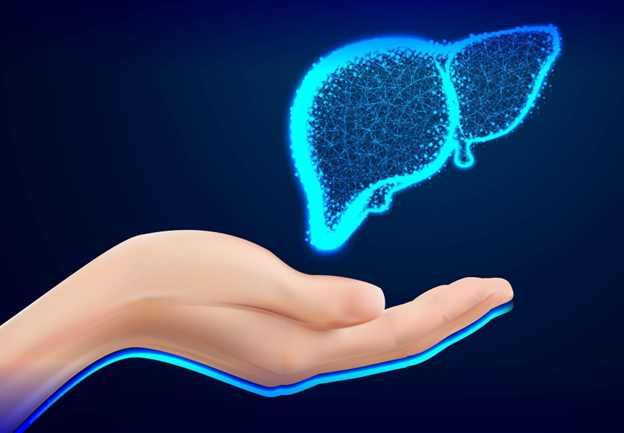In today’s fast-paced world, our lifestyles often take a toll on our health. One condition that is becoming increasingly common is fatty liver disease. This condition mainly affects the liver health, which is essential for many of our body’s functions. Understanding fatty liver disease is crucial for keeping our liver healthy and preventing long-term damage.

The Two Main Types of Fatty Liver Disease
Fatty liver disease can be categorized into two types:
– Non-Alcoholic Fatty Liver Disease (NAFLD): This is the more common type globally and has a notable presence in India. NAFLD occurs due to fat building up in the liver without excessive alcohol use. It’s often linked with obesity, Type 2 Diabetes, and other lifestyle-related diseases.
– Alcoholic Fatty Liver Disease (AFLD): AFLD results from excessive alcohol consumption. It highlights the cultural aspects in regions where alcohol is a significant part of social life. Understanding these two types is essential for proper diagnosis and treatment.
Identifying Causes and Risk Factors
Several factors can lead to the development of fatty liver disease:
– Unhealthy diets, which are often high in high triglycerides and insulin resistance.
– A sedentary lifestyle where physical activity is minimal.
– Obesity’s impact on liver health, seen through increasing waistlines.
– Genetic predispositions that can affect liver health even with a healthy lifestyle.
– Excessive alcohol consumption, a primary cause for AFLD.
– Conditions such as metabolic syndrome.
Recognizing Symptoms and Early Diagnosis
Recognizing symptoms of fatty liver disease early is crucial. Most people do not show symptoms until the condition progresses.
Symptoms may include:
– Fatigue and feeling tired often.
– Mild abdominal pain or discomfort.
– Occasionally, elevated liver enzymes can be detected through blood tests.
Early liver disease detection can prevent serious complications. Regular check-ups that include blood tests and an in-depth look at liver enzyme tests can help identify fatty liver disease before it worsens.
Effective Prevention and Management
Preventing and managing fatty liver disease involves lifestyle changes and regular health check-ups:
– Lifestyle changes for liver health include eating a balanced diet that is low in fats and sugars.
– Increasing physical activity to reduce obesity and its impact on the liver.
– Preventative measures for NAFLD involve maintaining a healthy weight and diet.
– For those with AFLD, reducing or abstaining from alcohol is crucial.
– Regular exercise is another key preventative measure for maintaining liver health.
– Monitoring and managing underlying health conditions such as diabetes and high cholesterol.
Conclusion: Importance of Awareness and Proactive Health Choices
Awareness about fatty liver disease, and its impact on liver health, can prevent serious damage. It’s vital to understand the importance of regular health screenings and adopting lifestyle changes for liver health. By making informed decisions about diet, exercise, and alcohol consumption, we can protect our liver and ensure our overall well-being. At Revive Multispecialty Hospital, we partner with you on your journey to liver health, offering comprehensive screenings, expert advice, and personalized treatment plans. Contact us today to schedule your liver health check-up.


